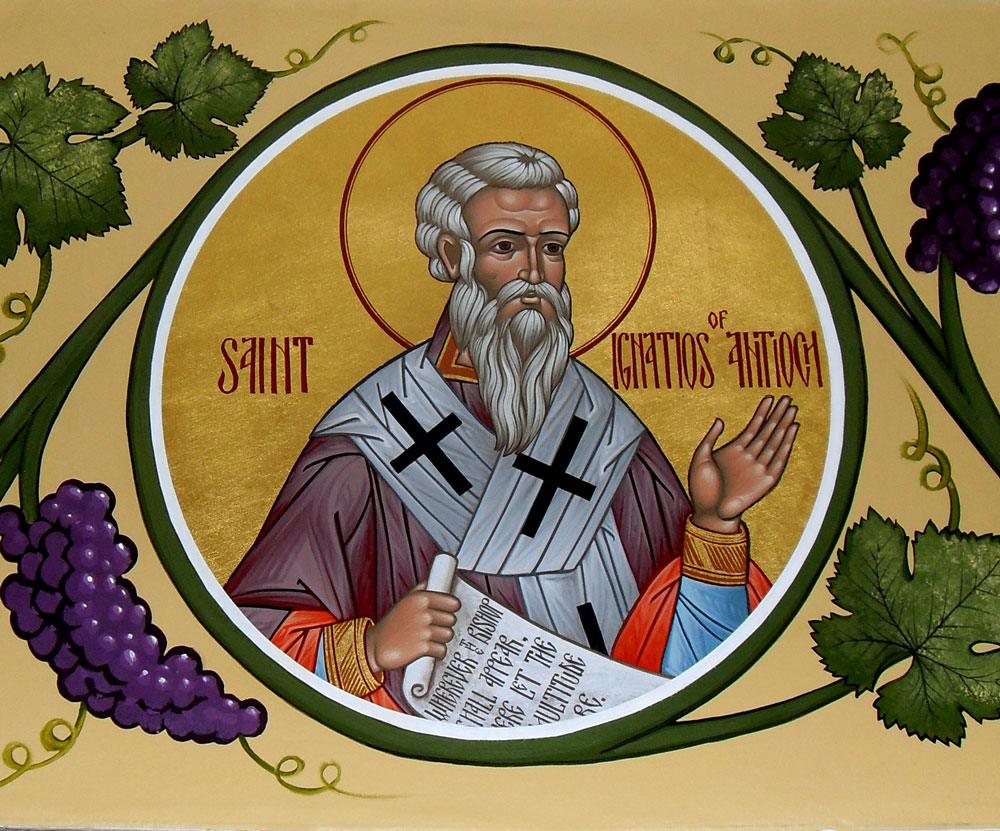
-St Ignatius of Antioch (35-108 AD)
“Even as there shall be false teachers among you, who privily shall bring in damnable heresies, even denying the Lord that bought them, bringing swift destruction on themselves.” ~2 Peter 2:1
The Catholic Church makes a distinction between ‘material’ (Ed: “in reality, as a ‘matter’ of real fact”) and ‘formal’ heresy. Material heresy means in effect “holding erroneous doctrines through no fault of one´s own” as occurs with people brought up in non-Catholic communities, i.e. through ignorance, or accident of birth, and “is neither a crime nor a sin”.
The material heretic is ready and willing to be corrected, and assent, were the truth made plain to them. BIG EXAMPLE: ignorant, or less than perfectly trained, catechists, i.e. yours truly. There are many scholarly types on the distribution for this blog for just this reason! 🙂 I rely on them to keep me, a) humble, and b) on the straight and narrow! We ignorants mean well, but we just don’t know better when the Internet is feeding us nonsense. 🙂 Thank goodness for copy/paste, or is it the work of the devil? 🙂 Thank you, auditors!!!!
Formal (Ed: knowing the truth, that it is held to be the truth by the Church, as a formal matter of dogma, and willfully rejecting it) heresy is “the willful and persistent adherence to an error in matters of faith”. The formal heretic refuses to be corrected. One must be baptized in order to be a heretic. Those unbaptized are under the category “other”.
The Church holds that since God created Creation and deemed it “good” (Gen 1:31), it cannot, intrinsically, be evil, as some heresies have held. For Catholics, the “glass is half-full”. Heresies go by many names, through many ages. They persist even into our modern world under guise. It is said, “there are no new heresies”. Bad thinking leads to bad action. Some have suggested modern forms of Gnosticism are Scientology and Freemasonry.

-by Br Isaac Augustine Morales, OP (Br Isaac received a doctorate in New Testament from Duke University and taught in the Department of Theology at Marquette University for four years before joining the Order.)
“From the earliest days, the Church has faced the perennial temptation to deny the goodness of material creation in general and of the human body in particular. The Platonic notion of the body as a “prison” from which the soul must escape has cropped up repeatedly throughout the Church’s history, only to be condemned every time someone proposed it.
We see one particular form of this error, the denial that Jesus really took on flesh and blood, reflected in the New Testament, and it is condemned in no uncertain terms: “For many deceivers have gone out into the world, men who will not acknowledge the coming of Jesus Christ in the flesh; such a one is the deceiver and the antichrist” (2 Jn 7). What is it that drives this temptation? And what makes the idea derived from it so pernicious that St. John calls those who embrace it “antichrist”?
The answer to the first question stems from two factors: the majesty of God and the messiness of creation. In the early centuries, God was seen as totally other than creation, in the words of 1 Timothy, “immortal, invisible, the only God” (1 Tim 1:17). God transcends the world and, unlike us, is not subject to change, to corruption, to pain and suffering, to anything that belongs to this world. Contrast this picture of an ineffable God with creation, particularly after the fall: we are born, we grow old, we suffer, we die. To many it seemed unfitting for God to experience birth and to have His diapers changed, much less to endure the shame and torture of one of the cruelest forms of execution ever devised by men. This is one aspect of the scandal of the Incarnation: that the God who transcends creation has joined Himself so fully to it that he knows first-hand our challenges and our trials.
St. Ignatius of Antioch, whom the Church commemorates today, meditated on this mystery as he was being led to Rome for his own execution, and he condemns the denial of Christ’s real flesh and blood as forcefully as the Second Letter of John. In one of his letters Ignatius explains the importance of Christ’s actual flesh and blood:
But if, as some that are without God, that is, the unbelieving, say, that He only seemed to suffer (they themselves only seeming to exist), then why am I in bonds? Why do I long to be exposed to the wild beasts? Do I therefore die in vain? Am I not then guilty of falsehood against [the cross of] the Lord?
There are at least two dangers in this denial of Christ’s real humanity and suffering: it empties Christian suffering of its purpose, and it implies deception on God’s part. To take the latter point first, if Jesus only appeared to be human and to suffer – if his looks are deceiving – then the Gospels lie to us. Jesus has nothing in common with us, and His life was a mere show – and a fraudulent One at that.
Closer to home for Ignatius, Jesus’ actual suffering in the flesh was closely bound up with his own impending martyrdom. In some mysterious way, Christ’s suffering takes up and incorporates the suffering of the members of his body:
By [the cross] He calls you through His passion, as being His members. The head, therefore, cannot be born by itself, without its members; God, who is [the Savior] Himself, having promised their union.
In His suffering and death, Christ manifests His solidarity with the human race, showing Himself to be a God who knows our trials not in some distant, indifferent way, but personally and experientially.
If the sole purpose of the Incarnation were Christ’s solidarity with us in our suffering, then Christianity would be little more than divinely sanctioned masochism. But for Ignatius, suffering – both Christ’s and ours – is not an end in itself, but rather a bridge to eternal life. It is by our suffering that we participate in Christ’s own sacrifice and through it come to the glory of His Resurrection. This is why one can rightly call a death at the jaws of lions a happy and peaceful one. The peace comes from the sure hope that death does not have the final victory – Christ has conquered it through the Resurrection.
Most of us are probably not ready to offer our bodies to the lions as Ignatius did, but we must remember that it was not on the basis of his own strength that he faced his death. He drew strength from feeding on Christ’s own Eucharistic flesh and blood, which he called the “medicine of immortality.” By feeding on this medicine we too can be strengthened to face our own trials and, God willing, pass through a happy death to the glory of the Resurrection.”
Love,
Matthew
